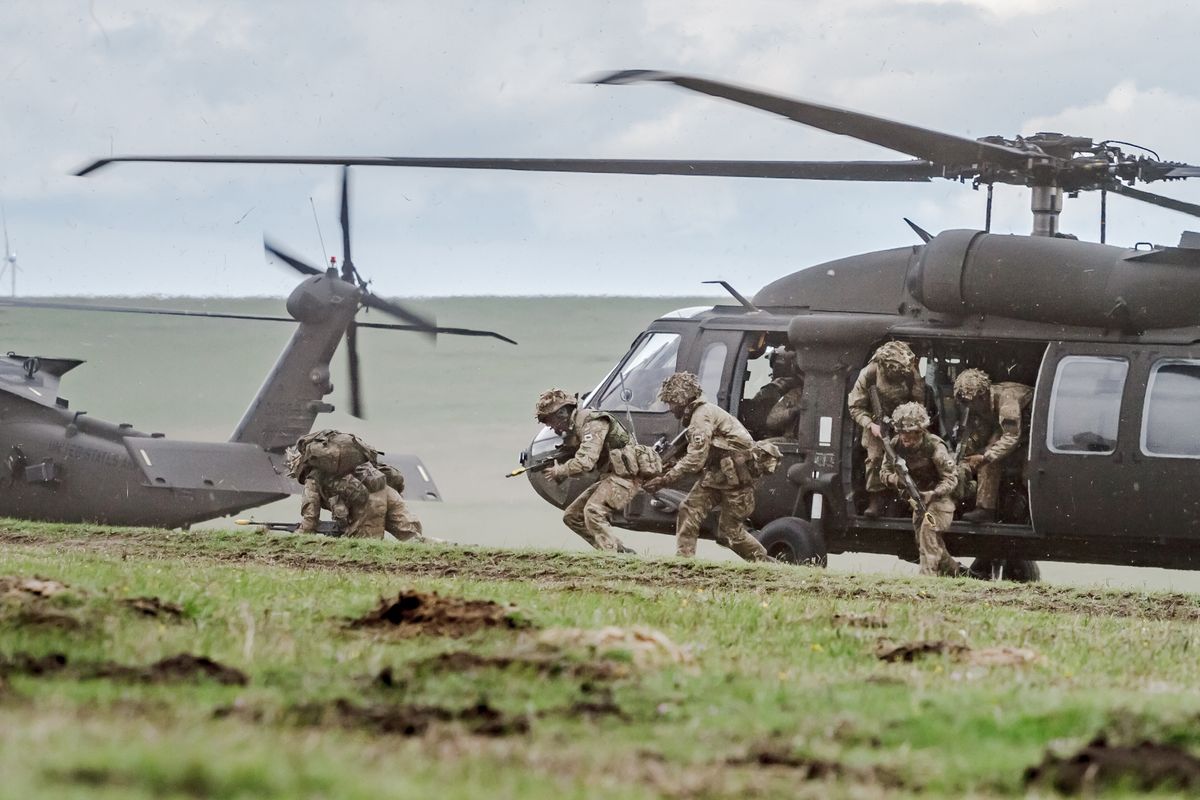NATO's Rapid Reaction Force - Sharpening the new "Spearhead"
Past event
Peace, Security & Defence
About
NATO’s new spearhead rapid response force is just one component of a fundamental change in the alliance’s posture following Russia’s aggression in Ukraine, the U.S. Ambassador to NATO said on 6 May.
Douglas E. Lute was talking at a Friends of Europe Policy Insight on the new Very High Readiness Joint Task Force (VJTF). NATO leaders approved this force at last year’s summit in Wales as part of a broader Readiness Action Plan (RAP) to enable the Alliance to respond better to new security challenges.
“RAP is all about immediate response to this new security challenge, but also the long-term adaptations,” Lute said. During the Cold War, he said, NATO had a clear force structure to deal with a single enemy. But this changed after the fall of Berlin wall, as troop numbers in Europe were reduced, and attention turned to challenges outside the NATO area. “Now, with this new reality, where we have challenges immediately on our doorstep, we’ve got to change again,” he said.
To make effective use of faster military response, allies’ governments will also need to react faster, said Marjanne de Kwaasteniet, Dutch Ambassador to NATO. “We have to improve our responsiveness at a political level,” she said. “We need to shorten the decision-making processes in situations in which decisions must be made under high pressure with too little information.”
By invading Crimea, Russia has in fact helped NATO, said Karl-Heinz Kamp, Academic Director of the Federal Academy for Security Policy in Germany. “The cutting trend in NATO is being reversed,” he said. “Even Germany is now increasing its defence budget – you might say not enough, but still you can say it’s a significant shift. Russia helps with its aggressive signals.”
Schedule
Speakers

Founder of Friends of Europe
Giles Merritt is the Founder of Friends of Europe, and was its Secretary General between 1999 and 2015, and its Chairman between 2016 and 2020.
A former Financial Times Brussels Correspondent, Giles Merritt is a journalist, author and broadcaster who has for over four decades specialised in European public policy questions. In 2010 he was named by the Financial Times as one of its 30 most influential “Eurostars”, together with the European Commission’s President and NATO’s Secretary General.
Giles Merritt joined the Financial Times in 1968, and from 1972 until 1983 he was successively FT correspondent in Paris, Dublin/Belfast, and Brussels. From 1984 to 2010 he was a columnist for the International Herald Tribune (IHT), where his Op-Ed page articles ranged widely across EU political and economic issues.
In 1982 he published “World Out of Work”, an award-winning study of unemployment in industrialised countries. In 1991, his second book “The Challenge of Freedom” about the difficulties facing post-communist Eastern Europe was published in four languages. His book “Slippery Slope: Europe’s Troubled Future” (Oxford University Press 2016), was shortlisted for the European Book Prize.
Activities
From ambition to action: building Europe’s Defence Union
Past event In person

- Area of Expertise
- Peace, Security & Defence
EU-Western Balkans Summit: Enlargement matters – Europe’s new…
Next event

- Area of Expertise
- Peace, Security & Defence
Frontline Voices: renewing the women, peace and security agenda
Past event Online

- Area of Expertise
- Peace, Security & Defence
Frontline Voices: diagnosing the disconnect – The Women, Peace and…
Past event Online

- Area of Expertise
- Peace, Security & Defence
Policy Voices | Overcoming polarisation: defence in the time of distrust
- Category
- Podcast
- Area of Expertise
- Democracy
Policy Voices | A historic NATO summit raises defence spending target to 5%…
- Category
- Podcast
- Area of Expertise
- Peace, Security & Defence
Living in a perpetual state of emergency
- Category
- #CriticalThinking
- Author
- By Jamie Shea
Beyond sanctions: five strategic tools the EU must use to end the war in…
- Category
- #CriticalThinking
- Author
- By Liel Maghen

- Area of Expertise
- Peace, Security & Defence

- Area of Expertise
- Peace, Security & Defence

- Area of Expertise
- Peace, Security & Defence

- Area of Expertise
- Peace, Security & Defence
Continue
the debate on
- Debating Europe
